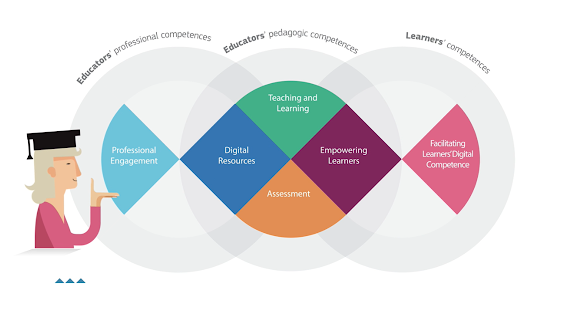Basis of Research

The main framework which group relies on is DigCompEdu. The teacher’s digital competence model is based on the European Commission’s educator’s digital competence framework DigCompEDU, and the learner’s digital competence model is based on the digital citizen’s framework DigComp. The European Framework for the Digital Competence of Educators (DigCompEdu) is a scientifically sound framework describing what it means for educators to be digitally competent. It provides a general reference frame to support the development of educator-specific digital competences in Europe. There is also an international project named “DCDS” (Digital Competences Development System) and this project has been funded with support from the European Commission. There is a platform made for it and the group can use input from this project as well. “The main objective of the project is to develop an integrated modular system, the “Digital Competences Development System - DCDS” and use it to develop basic...

